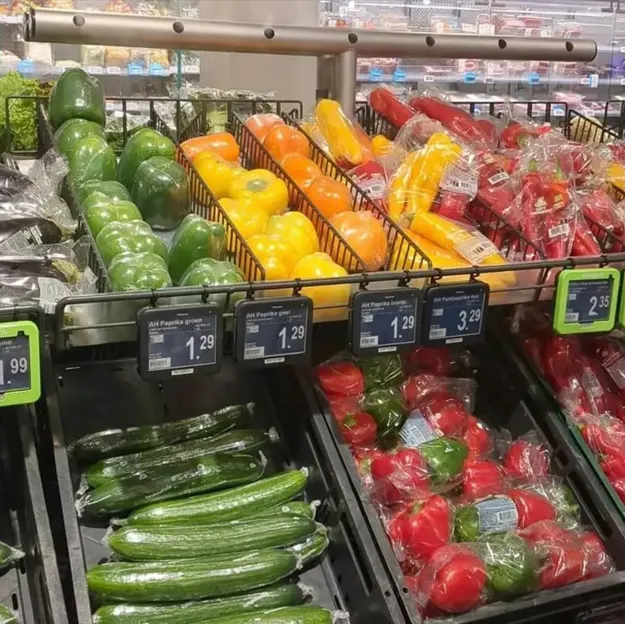How much plastic is necessary in the produce section of a supermarket? A post on the American platform Reddit shows the produce department of a Dutch supermarket, where a misting system is spraying water droplets over vegetables and fruits that all seem to be wrapped in plastic.
"The plastic is wasteful, and moistening plastic is an added waste. Besides, if water gets between the plastic and the product, it also reduces the shelf life," reads one of the comments. Although it's been two months, the photo was recently picked up by other websites.


The use of plastic to wrap vegetables has been a topic of discussion for some time. Supermarkets, also under pressure from the European Union, are taking measures to reduce the use of plastic. Albert Heijn, the supermarket where the photo was taken, announced in 2019 that it would stop using packaging for peppers, bananas, sweet pointed peppers, and carrots. They also sell reusable, washable bags for vegetables and fruits.
At the same time, according to suppliers, plastic plays an important role on the shelves. A cucumber wrapped in plastic stays fresh for 10 to 14 days longer than an unwrapped variant. Thus, plastic can also prevent food waste. Moreover, according to European laws, which are strictly adhered to in the Netherlands, organic vegetables and fruits often cannot be indistinguishably placed next to conventional products. This also results in plastic on the shelf.
The misting of vegetables is also related to shelf life. Retailers can keep their vegetables and fruits fresher for longer by 'spraying' them with mist, as revealed by a 2017 study from a Danish university. This is mainly because the temperature of the products on the shelf drops by four to five degrees.
There is no data available on the combination of mist and plastic - so whether the retailer or the consumer is at a disadvantage in this situation is still up for debate.
